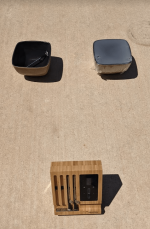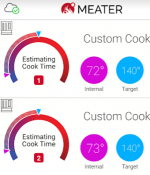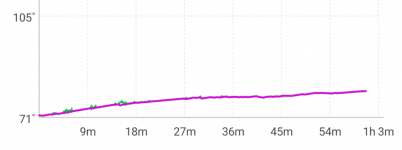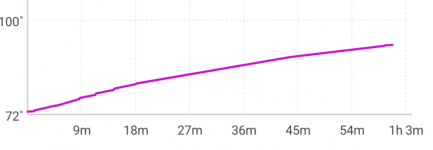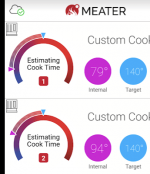Okay, I know this has been discussed in more than a few threads here, but I’d like to add a thought that I think (?) most people are missing... 1. Pool cover makers advertise as much as a 10-20 degree heat rise from using their solar cover. 2. Naysayers constantly write that solar covers don’t heat the pool any more than the sun does without the cover, but only stop evaporation overnight. 3. I’ve also read a lot about different colored covers working better or worse than others. Here’s my take (and I’m definitely open to being corrected here if I am missing something):
Logic tells me that yes, a pool cover should not “amplify the sun’s rays” or act as a traditional heater, but the fact that they stop evaporation (in the daytime as well as at night!) tells me that they do/can, in fact, raise the temperature quite a bit. Doesn’t water boil quicker on your stove when you keep the cover on your pots and pans?? I agree that MORE evaporation occurs at night when the temp goes down, and that this is the main benefit, but the cover does still lock in the heat during the day. I also believe that a clear cover works best at this because it lets the sun’s rays shine through to the water better, so it doesn’t stop or hinder the natural heating process from the sun like a dark or reflective cover can. Most importantly, I’ve been using solar covers all my life (my parents pool and now mine), and they have ALWAYS raised the water temperature in the pool. I remember the first year we got one for my parents’ pool when I was a kid and my dad was amazed at how well it worked, and we almost never used the gas heater anymore. Anyway, it just irks me somewhat when I read about how “solar covers don’t heat the pool.” They just do. If you put a solar cover on in the morning on a sunny 90 degree day, the water temperature will rise quicker than if you do not in every single case in my experience. Now, the 10-20 degree rise will definitely not happen in a single day, it’s cumulative because you will start with a higher temp the next day due to less overnight evaporation. I guess what I’m saying is that the semantics of why or how don’t really matter to me. At the end of the day, in my experience, they heat the pool. If using a solar blanket equals warmer water, then it is heating the pool, right? Like others though, I’m very skeptical about cover thickness, micro bubbles, diamond bubbles, etc, helping the process in any way...Thoughts?
Logic tells me that yes, a pool cover should not “amplify the sun’s rays” or act as a traditional heater, but the fact that they stop evaporation (in the daytime as well as at night!) tells me that they do/can, in fact, raise the temperature quite a bit. Doesn’t water boil quicker on your stove when you keep the cover on your pots and pans?? I agree that MORE evaporation occurs at night when the temp goes down, and that this is the main benefit, but the cover does still lock in the heat during the day. I also believe that a clear cover works best at this because it lets the sun’s rays shine through to the water better, so it doesn’t stop or hinder the natural heating process from the sun like a dark or reflective cover can. Most importantly, I’ve been using solar covers all my life (my parents pool and now mine), and they have ALWAYS raised the water temperature in the pool. I remember the first year we got one for my parents’ pool when I was a kid and my dad was amazed at how well it worked, and we almost never used the gas heater anymore. Anyway, it just irks me somewhat when I read about how “solar covers don’t heat the pool.” They just do. If you put a solar cover on in the morning on a sunny 90 degree day, the water temperature will rise quicker than if you do not in every single case in my experience. Now, the 10-20 degree rise will definitely not happen in a single day, it’s cumulative because you will start with a higher temp the next day due to less overnight evaporation. I guess what I’m saying is that the semantics of why or how don’t really matter to me. At the end of the day, in my experience, they heat the pool. If using a solar blanket equals warmer water, then it is heating the pool, right? Like others though, I’m very skeptical about cover thickness, micro bubbles, diamond bubbles, etc, helping the process in any way...Thoughts?


